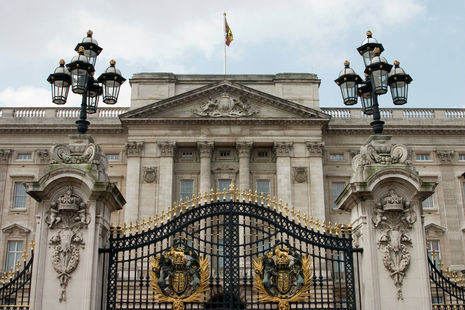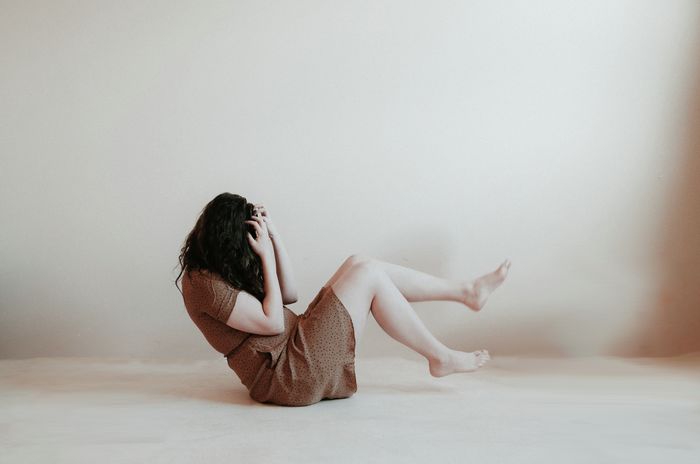The Crown, Covid and my country
Katie Chambers explores how her feelings of patriotism and national identity changed during 2020.

Content Note: This article contains discussion of grief and mental health.
Like 73 million households across the UK, I spent a lot of 2020 in the company of Claire Foy and Olivia Colman. From various beds in various lockdowns I watched a young Elizabeth II impassively accede to the throne, assassinations and marriage scandals, and a middle-aged Prince Phillip get choked by the moon landing. Over Christmas my mum, my sister and I fell in love with Emma Corrin’s Diana from our sofa. The Crown is definitely one of the best series I’ve watched: stunningly shot, wonderfully acted, an addictive blend of political history and soap opera. The thing I loved most about it was the complicated cocktail of feelings about the royal family it left me with. Their pursed-lipped frigidity was often repulsively cruel, but I understood that it came from excruciating loneliness (“Each one is a lost soul”, confesses Prince Phillip in the final episode.) Their cartoonishness, a jewelled and robed motley speaking in other-worldly Queen’s English, was alienating but also spellbinding. I knew they were a cold, sinister institution but I sympathised with their human loneliness: I felt a mixture of disgust and identification.
This mixture is probably the best description I can think of for my relationship with my country as 2020 played out. I’ve never had such strong feelings about the UK, but they’ve also never been more confused and contradictory as rules, rhetoric and my feelings fluctuated day-by-day.
The depths of the first lockdown, March and April, was the hardest moment of 2020 for me. (When Princess Margaret, struggling with her mental health, told her sister, “Time...scares me. It fills me with dread”, I felt that.) I felt intense fear and a sense of loss of things I’d taken for granted: university, spontaneity, dancing with my friends, but clung on to a sense that the whole country was enduring it together in some educative, unifying way. I was surprised and guilty when I experienced unfamiliar feelings of patriotism. I watched the real Elizabeth II make a speech for the first time and got emotional when she told us, “We will see our friends again.” I kept up with students across the country recording the trials, tribulations and breakout rooms of online university on social media, feeling more connected to my demographic than ever before. My street and I clapped for the NHS at 8pm every Thursday with a sense of pride that somehow key workers’ courage and our local gratitude were national virtues, something essentially British. I remember feeling winded when I learned that Boris Johnson had been moved to an intensive care ward.
“I’ve never had such strong feelings about the UK, but they’ve also never been more confused and contradictory as rules, rhetoric and my feelings fluctuated day-by-day.”
These feelings confused me because they stood completely at odds with my usual attitude towards my country and government, an anger that resurfaced more strongly than ever as we moved into the summer. The wave of anti-racist education that accompanied the Black Lives Matter protests refocused me: I was reminded of the institutionalised class and racial inequality perpetuated by the same Conservative government who had told us in weekly briefings, “we’re all in this together.” When Dominic Cummings drove from London to Barnard Castle to “test his eyesight”, I was reminded of the hypocrisy and cronyism of these politicians, somehow above their own laws on drugs, tax and now coronavirus. I was most enraged in October, when Boris Johnson consistently ignored calls first by scientists, then by the NHS, then by politicians, for a two week “firebreak” lockdown to protect against what is now a deadly second wave. As a student, the governmental negligence I felt most keenly is that of mental health, which has also been deadly amongst my friends. In The Crown I saw the heritage of the chronic underfunding and undervaluing of mental health in England: a cherished tradition of suppression, stiff upper lips and no hugs. I remember a lot of my grief being anger at this culture.
By the winter the Unitedness of the United Kingdom I’d felt in March had also gone. I’ve never felt more aware that I was part of a country than I did in the first lockdown, keeping track of UK infection rates on press-conference graphs and comparing them to the graphs that followed for China, Italy, France and the USA. By December, Westminster had fractured the country into indistinct, ever-multiplying tiers and alienated the North. The issue of obedience to the rules reached really close to home, dividing my friends and family more profoundly than I had ever expected. The country unit itself was disintegrating.
With a bit of hindsight I was able to explain some of my emotional and political contradictions, my mixture of disgust and identification. Firstly I’ve accepted that emotionally zigzagging is normal during a pandemic: “unprecedented times” dredge up unprecedented feelings. I also know now that because I was my most vulnerable in March, I was much more susceptible to nationalist rhetoric and anyone with a podium and slides who claimed to offer answers. British exceptionalism is not new, but a post-war sense of sovereignty that The Crown shows sowing the seeds of Brexit under Margaret Thatcher. But for someone very lucky to have never lived through such a crisis before, 2020 was a first-hand education about for me about the ability of patriotism to offer short-term comfort while anaesthetising us to a shambles.
 Features / Beyond the porters’ lodge: is life better outside college?24 February 2026
Features / Beyond the porters’ lodge: is life better outside college?24 February 2026 News / Cambridge academics sign open letter criticising research funding changes22 February 2026
News / Cambridge academics sign open letter criticising research funding changes22 February 2026 Theatre / Footlights Spring Revue? Don’t Mind if I Do!25 February 2026
Theatre / Footlights Spring Revue? Don’t Mind if I Do!25 February 2026 Fashion / The evolution of the academic gown24 February 2026
Fashion / The evolution of the academic gown24 February 2026 News / Student and union protesters hold ‘Trans Liberation Solidarity Rally’ 24 February 2026
News / Student and union protesters hold ‘Trans Liberation Solidarity Rally’ 24 February 2026









![How to Create an Attractive Freelancer Portfolio [5 Tips & Examples]](https://www.varsity.co.uk/images/dyn/ecms/320/180/2026/02/vitaly-gariev-ho2tNOWZYXM-unsplash-scaled.jpg)
